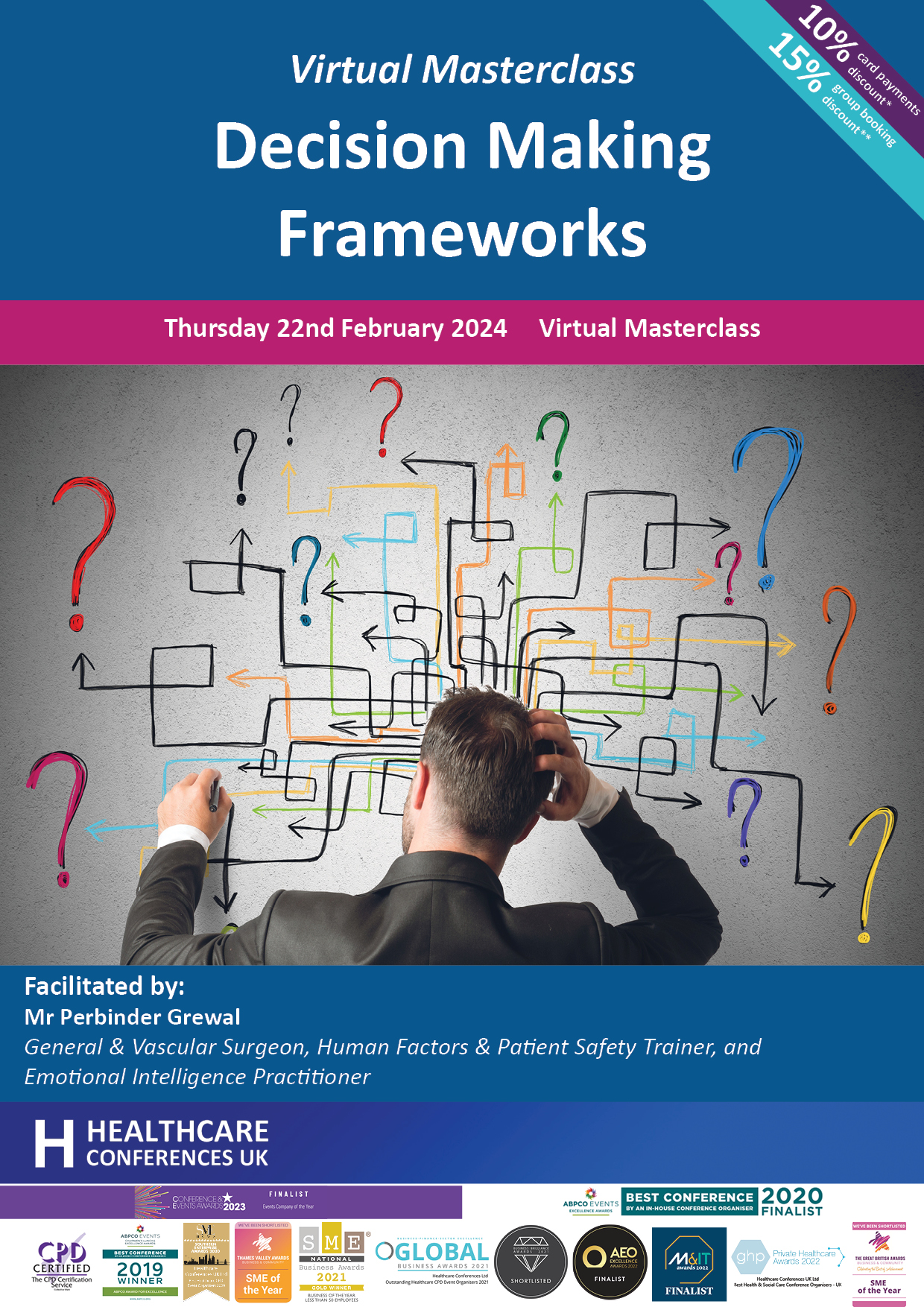COURSE OUTLINE
Welcome to the Decision-Making Frameworks Masterclass! In today’s fast-paced and increasingly complex world, making informed decisions is crucial for both personal and professional success. The ability to navigate through various options and choose the best course of action is a vital skill that can significantly impact the outcomes of our choices.
In this masterclass, we will delve into a comprehensive exploration of various decision-making frameworks that have been developed to help individuals and organizations make better choices in different situations. Our goal is to provide you with the knowledge and tools necessary to evaluate and evidence your decisions effectively, ensuring that they are well-informed and supported by relevant data.
Throughout the course, we will discuss key decision-making frameworks, their applications, and how to adapt them to real-world scenarios. We will also provide guidance on how to collaborate with stakeholders, gather relevant data, and consider the long-term implications of your choices.
By the end of this masterclass, you will have a deeper understanding of the decision-making process and will be equipped with practical techniques and strategies to improve your decision-making abilities in various contexts. So, let’s embark on this journey together and unlock the power of effective decision-making!
WHO SHOULD ATTEND
Clinical staff, Managers, Admin staff, Policy makers and Board members
KEY LEARNING OBJECTIVES
- Understand the importance of effective decision-making in personal and professional contexts, and recognize the consequences of poor decision-making.
- Identify the key elements of the decision-making process, including problem identification, gathering information, evaluating alternatives, making a choice, and implementing the decision.
- Develop a strong grasp of various decision-making frameworks, such as the Rational Decision-Making Model, the Six Thinking Hats, the OODA Loop, the Cynefin Framework, and the Pros and Cons List.
- Apply the most appropriate decision-making framework to specific real-world situations, considering factors such as complexity, uncertainty, and available information.
- Gather and analyze relevant data from various sources to support well-informed decision-making, ensuring the information is accurate, reliable, and up-to-date.
- Collaborate effectively with stakeholders to gain diverse perspectives and insights, leading to more inclusive and well-rounded decisions.
- Consider the long-term implications of decisions, assessing how they align with overall goals and values.
- Monitor, evaluate, and adapt decisions as needed, based on their outcomes and any new information that becomes available.
- Develop critical thinking and problem-solving skills to better navigate complex situations and make more informed choices.
- Enhance overall decision-making confidence and competence, leading to improved personal and professional outcomes.
FACILITATOR
Mr Perbinder Grewal, General & Vascular Surgeon, Human Factors & Patient Safety Trainer, and Emotional Intelligence Practitioner. Perbinder is an accomplished healthcare leader, management consultant, and patient safety and human factors trainer with over 15 years of experience in managing the professional development of staff and improving operational effectiveness in healthcare organizations. He is well-known for his expertise in patient safety, human factors, risk management, and leadership in healthcare.
Perbinder's passion for education and training has led him to deliver lectures and masterclasses to over 500 participants on topics such as team leadership, change management, culture, stress management, coaching, and mentoring, both in the UK and abroad. He has facilitated learners to acquire knowledge, skills, and competencies in an effective and appealing manner, while chairing informative conferences and seminars. Linkedin: www.linkedin.com/in/perbindergrewal



